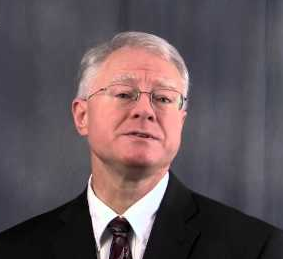- Learn about the career field of systems engineering.
- Learn why a technical liberal arts degree (e.g., in engineering, science, mathematics, or computer science) provides an excellent foundation for a career in systems engineering.
- Learn how the University of Maryland’s Master of Science in Systems Engineering (MSSE) can prepare you for such a career.
- Development of large, complex systems requires the integration of a broad range of engineering disciplines.
- Systems Engineering provides tools, techniques, and processes for managing the development of such systems.
- Systems Engineers guide and coordinate the work of teams of engineers from a variety of disciplines to develop such systems.
- Systems Engineers are in demand, well-compensated, and have opportunities for advancement.
- In 2009, Money magazine rated Systems Engineer as the best job in America because of its high salaries, opportunities for advancement, and inherently interesting and creative work.
Category: Student Events
Student Talk Series: Dr. John MacCarthy, Systems Engineering Education Program University of Maryland, College Park, Thursday, September 17th in Olin 268 @ noon
Title: The Use of Markov State Models in Reliability, Availability, and Maintainability (RAM) Analysis
Abstract: Three of the most important attributes of a system are its availability, reliability, and maintainability. A large portion of a typical system’s life cycle cost is driven by its reliability and maintainability. Reliability, Availability, and Maintainability (RAM) analyses are performed as a part of the development of almost all large-scale systems. Conceptually, there is a simple algebraic relationship between these three parameters that may be derived from a simple Markov state model. For complex systems, the models can become quite challenging. This seminar will provide 1) a discussion of why availability, reliability, and maintainability are important characteristics of a system; 2) definitions for each characteristic and their associated metrics; 3) an example of a simple system and how a simple Markov state model may be developed and used to derive the algebraic expression for the relationship between the three metrics; 4) an example of how the expression may be used to perform trade studies and sensitivity studies; and 5) a discussion of the simple analytical framework may be extended to address more complex systems.
Student Talk Series: Erik Bollt, Clarkson University, December 4th, Olin 268 @ noon
Title: Diseases, Fame and Merit – Various Outbreaks on Social Networks
Abstract: Dynamical Systems, Chaos theory and Complex Systems theory has some useful mathematical tools to bring to bear on problems that are very familiar to our own lives. Furthermore, social media has some really relevant large scaled data that also lends toward a modern discussion of what happens when people socially contact.
Student Event: A Mathematical Mandala with Nancy Cleaver; October 4, @1pm, Smith Quad
Artist Nancy Cleaver has created a (very) large mathematical mandala for the Bucknell University Mathematics Department. Her mandalas contain words, symbols or numbers. Please help us color the mandala or just stop by to find the hidden object and lend us some moral support. We’ll provide the chalk and the sidewalk. All we ask is that you color within the lines. Hope to see you there!



